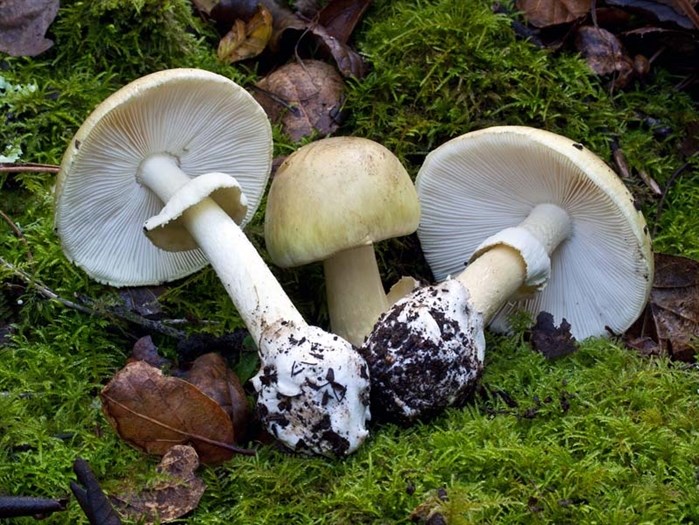
Amanita phalloides are also known as death cap mushrooms.
Image Credit: SUBMITTED/bccdc.ca
July 15, 2023 - 11:30 AM
Following the hospitalization of a child who consumed part of a death cap mushroom in Vancouver, the B.C. Centre for Disease Control wants British Columbians to remember how dangerous they can be.
“Thankfully, the child only consumed a small portion of the mushroom, received medical attention and is doing fine,” the BCCDC said in a release. “However, this event is a reminder that these poisonous mushrooms are dangerous for human health.”
Death cap mushrooms – which are not native to B.C. – have been found in the Lower Mainland, Fraser Valley and on the Island. They are believed to have come to the province through the transportation of residential street trees like English and red oaks, sweet chestnut, hornbeam, European beech, hazelnut and linden trees.
Death caps, also known as Amanita phalloides, tend to appear during wetter months in the fall, though they can also appear during summertime, particularly in areas that are watered regularly.
Within six to 12 hours of ingesting them, they can cause cramping, abdominal pain, vomiting, diarrhea and dehydration.
Many people who eat the mushrooms will feel better after 24 hours but their vital organs will continue to suffer damage from the toxins. So prepare for a second wave of diarrhea and cramping within 72 hours, which may result in severe illness and organ failure.
“Medical treatment and organ transplants may be required to prevent death.”
Anybody who makes the mistake of eating a death cap mushroom should immediately call poison control at 1-800-567-8911.
If the mushrooms are found growing, the BCCDC asks members of the public to make a report by noting the location and taking careful photographs. Mushrooms should be removed and tossed in the garbage, not the compost.
To contact a reporter for this story, email Dan Walton or call 250-488-3065 or email the editor. You can also submit photos, videos or news tips to the newsroom and be entered to win a monthly prize draw.
We welcome your comments and opinions on our stories but play nice. We won't censor or delete comments unless they contain off-topic statements or links, unnecessary vulgarity, false facts, spam or obviously fake profiles. If you have any concerns about what you see in comments, email the editor in the link above. SUBSCRIBE to our awesome newsletter here.
News from © iNFOnews, 2023